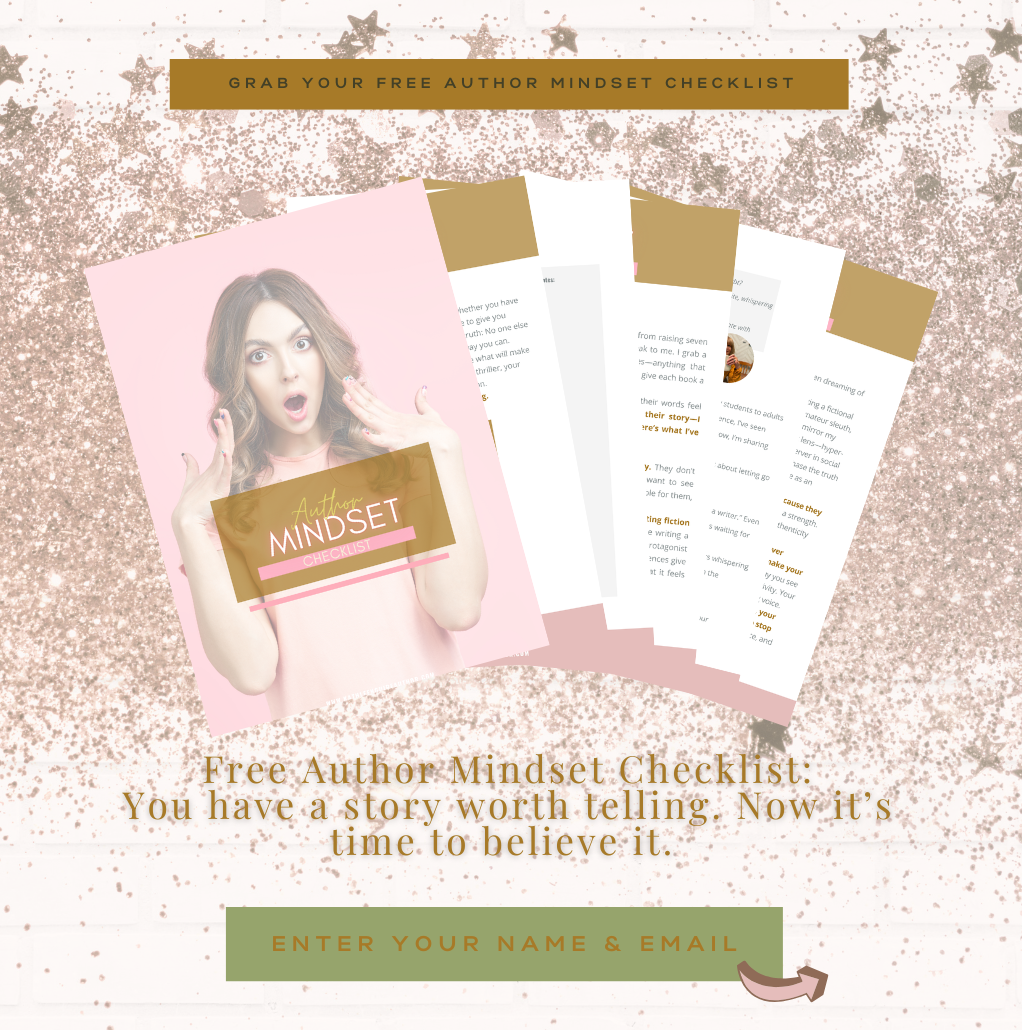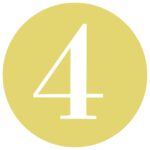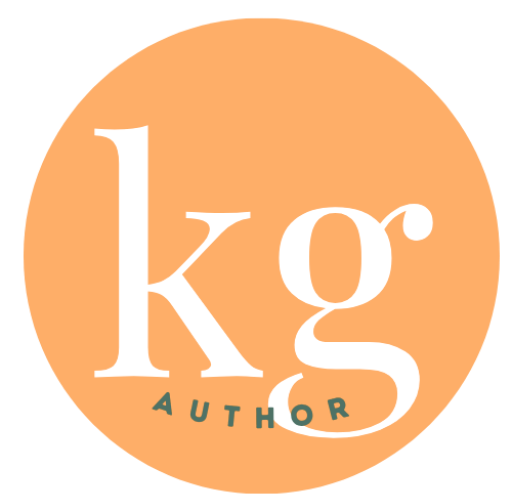Six Important Keys of Development For Writers To Move From Fear To Final Product
Your Development as a Writer Can Begin Now
Every January, we plot out resolutions.
We resolve to be a “new” person by the year’s end.
- Eat healthily.
- Exercise Regularly.
- Write a novel or memoir.
- Start a blog.
- Start a podcast.
All of these are good resolutions as long as we invest in the tools to develop ourselves. That may mean signing up for the recipe subscription or exercise class. Or reading the book on the craft of writing and actually following through on the recommendations.
Confession. I bought a Cultivate What Matters Planner in the middle of the year. I watched the video lessons meant for December in the summer. Why? That’s when I needed some extra direction and motivation and a fresh new schedule. It doesn’t matter what time of year you are reading this, it’s okay to start working on the development part of your author journey. In fact, this will be a constantly recurring pitstop. It’s never one and done. It’s never going to be perfect. What the development stage needs to be is consistent.
From now on, you’re moving on from denial (even though you may stop there sometimes, I do and that’s okay). This stage is where you take your discipline, determination, and direction and begin to develop something real and authentic. This is when you take those journal entries, scribbles on napkins, the writing advice you’ve gleaned from books, podcasts, and Pinterest and get to work. You’re going to develop an article, a series, or a book.

Struggling with self-doubt as a writer? You’re not alone.
Every writer faces that little voice whispering, “Who am I to write this?” But here’s the truth—mindset is the biggest difference between writers who finish their books and those who don’t. 🚫 You don’t need more time.
🚫 You don’t need permission. ✅ You need the right mindset.
Six Keys of Development
Here are six essential keys to developing your writing career:

Schedule. If you don’t plan to write, you never will. Be creative with scheduling it. Put it on your calendar. I have a meeting with myself every Sunday afternoon. I plan my week. I block out time and plan for my writing goals for the week. If detailed scheduling is not your jam, at least have a task list. I love the Cultivate What Matters weekly sheets. If you’re afraid to block off time to write because you might fail or miss it. Hint: You will and that’s okay. But isn’t it better to be flexible and when you get to the end of a week, have put in three or four writing sessions instead of zero? You may need to play around with your schedule and figure out, which I mentioned in the last post. Which time of day are you more alert and able to write? This of course also depends on the stage of life you’re in. You may have other responsibilities that mean you have to use the time available to you. For instance, when I wrote A Positive Adoption Story, I was still homeschooling kids. Plus chauffeuring them to play practices, swim practices, and other events. Instead of chatting with other moms in the theatre or beside the pool, I began hauling around a notebook and writing. That’s what worked for me. Only you know what will work for you.

Clarity. Have a clear idea of what you are writing about and whom you are writing for and stick to it. It’s not enough to have a block of time on your calendar to write. Who is your audience? You must know what you are writing about and who you are writing to. Remember you aren’t writing for everyone. For example, my audience for this website is writers. More specifically – writers need tips and encouragement to craft their authentic stories with courage. For my other website – my audience is adoptive/foster parents, parents of kids with a capital letter syndrome (FAS, FAD, ADD, ADHD, SPD, etc.) teachers, counselors, church leaders, and professionals who need trauma-informed solutions. My goal is to equip, educate, and encourage the above. If you think that’s a lengthy, detailed list. It is. It’s important to know exactly what your theme is and whom you are writing for and to.

Process. Develop a writing process that works for YOU. I have a process. It may look different than yours. I like to journal ideas for a series or book first. Then I transfer my ideas to a document. As I’m writing this, I type things such as “quote here.” I write and then go back and revise, edit, add headings, quotes, and finally make sure my theme is clear. I should be able to sum it up in one sentence – I do this for chapters in books as well.
In fact, when I’m revising a book, I print it out, put it in a three-ring binder, and put a post-it note at the beginning of each chapter with the question – What’s the theme for this chapter? The theme of this article is -Developing Your Writing: Six keys of development for moving from desiring to write to actually doing it with the destination of a finished product in mind.
*Warning- don’t adopt someone else’s process unless it fits your personality!

Write.Don’t edit while you write. Shut down the voice of your inner critic. Don’t worry about spelling, grammar, or stop to look up the exact quote. Just write. Set a word count goal or a time limit, but don’t get tripped up by it. Progress over perfection. Writing is not editing. Writing is not revising. Your first draft is what I call sloppy copy. Writing has multiple phases:
- Write
- Revise
- Edit
- Publish
Don’t confuse writing your sloppy copy with your finished work or destination. Writing is a process. Enjoy it.

Authenticity. Be authentic. This is a tough one to navigate. Being authentic doesn’t mean telling everything. It also doesn’t mean appearing picture perfect. Be yourself. Share the struggles you have and how you overcame them. Pray for wisdom about how much to share. Does what you are writing encourage and equip your readers?
“We too have the opportunity to share our witness of the ways Christ has changed us with those who may feel there is no hope for them. By taking off our masks and being real, we can “shine out among them like beacon lights, holding out to them like the Word of Life.” Phil. 2:15” –
Marlene Bagnull, Write His Answer

Educate.Continue to educate yourself on the craft of writing. Some of us work on the art of writing instead of actually writing. This is part of the process as well. In fact, I put education on my schedule as well – an hour a day.
If you think that’s unrealistic or you don’t have time to educate yourself-think about how much time you scroll on Instagram.
Or the Netflix series you binge-watch when your kids go to bed.
If you have toddlers or infants, grab some time while they are napping or after they go to bed.
The truth is, we all have twenty-four hours in a day and when we are determined to do something, we will do it.
Sometimes, I listen to a book or podcast while kayaking on the lake, or hiking on a trail. Be creative. You don’t have to be sitting at a desk to educate yourself!
Development is the most important stop on my “Roadmap For Jump Starting Your Author Career.” I like to imagine I have an old VW camper van with a vintage typewriter in it. My camper van is stocked with coffee, snacks, books (on audible and print) on writing, and a journal. I pull it up to development and camp here for the better part of my trip. It’s where my desire and my acceptance finally get down to business. What about you? What sort of vehicle do you imagine yourself camping in? What is it stocked with to aid you in developing you as a writer? Park in the development state,
- Plan your writing,
- Have a clear idea of what you are writing about and who you are writing to and stick to it.
- Develop a process that works for you.
- Don’t edit while you write.
- Be authentic.
- Continue to educate yourself on the craft of writing.
Journal it Out
Grab your journal and work through these questions-
- Realistically, when is the best time for me to write? Take some time and think about when you are most alert and can focus.
- What are you writing about and whom are you writing to? Take some time to make up an avatar. Be specific about who she is and write to her.
- What process do you think will work for you?
- Do you see obstacles when it comes to editing while you write? How can you prepare yourself to avoid them?
- Start a list of education materials to work through.
Hooray! Use these six keys to develop your writing. Of course, this is a skeletal list of practices on an author’s journey.

Struggling with self-doubt as a writer? You’re not alone.
Every writer faces that little voice whispering, “Who am I to write this?” But here’s the truth—mindset is the biggest difference between writers who finish their books and those who don’t. 🚫 You don’t need more time.
🚫 You don’t need permission. ✅ You need the right mindset.
Pin it:


